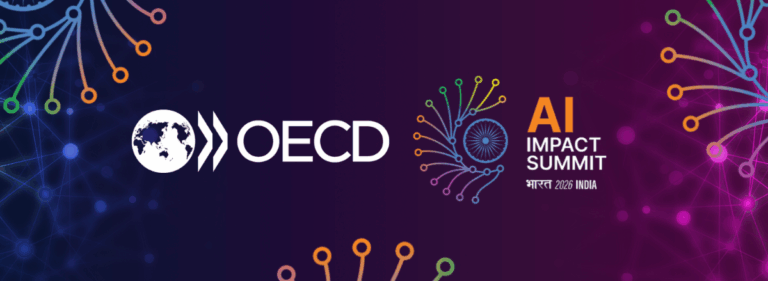Strengthening global AI Safety: A perspective on the Singapore Consensus

As artificial intelligence (AI) technologies advance rapidly, societies around the world face a growing urgency to ensure that the AI safety research keeps pace and that these tools are not only powerful but also safe, reliable, and aligned with human values. Given this globally pressing issue, we are proud that Singapore hosted the 2025 Singapore Conference on AI (SCAI), to bring together the best global minds across geographies to produce a significant international milestone in the field of AI safety: the Singapore Consensus on Global AI Safety Research Priorities.
This Consensus reflects shared priorities of over 100 AI experts from 11 countries, including researchers, policymakers, and private sector leaders. Its core objective is to establish a practical, shared research agenda that identifies critical technical areas of AI safety research requiring international attention, ensuring the safe development and deployment of AI.
As representatives of Singapore’s Infocomm Media Development Authority (IMDA), and as members of the OECD.AI Network of Experts, we believe this document holds particular significance globally and aligns closely with the OECD AI Principles, which promote inclusive growth, transparency, robustness, and accountability in AI systems.
Why the Singapore Consensus matters
The Singapore Consensus is not merely a list of ideas, but a response to growing global concern that AI capabilities are outpacing our collective ability to evaluate and govern them. With AI models now influencing everything from education to employment, many of the world’s leading minds agree that robust safety research is essential.
The Consensus outlines three key technical AI safety research areas that deserve urgent and sustained attention:
- Risk Assessment
The primary goal of risk assessment is to understand the severity and likelihood of a potential harm. Risk assessments are used to prioritise risks and determine if they demand specific action. It forms a core research priority as it informs subsequent development and deployment decisions in AI.
The research areas in this category involve developing methods to measure the impact of AI systems for both current and future AI, enhancing metrology to ensure that these measurements are precise and repeatable, and building enablers for third-party audits to support independent validation of these risk assessments. The OECD’s new AI Capability Indicators initiative, which aims to assess AI systems against human-level abilities, directly supports this goal.
- Development
AI systems that are trustworthy, reliable and secure-by-design give people the confidence to embrace and adopt AI innovations. Following the classic safety engineering framework, the research areas in this category suggest technical methods for specifying the desired behaviour, designing an AI system that meets the specification, and verifying that the system meets its specification. - Control
In engineering, “control” usually refers to the process of managing a system’s behaviour to achieve a desired outcome, even when faced with disturbances or uncertainties, and often in a feedback loop. The research areas in this category involve developing monitoring and intervention mechanisms for AI systems, extending the AI systems’ monitoring mechanisms to the broader AI ecosystem, and societal resilience research to strengthen societal infrastructure to adapt to AI-related societal changes.
The OECD AI Principles, endorsed by numerous regional and global governments, have long emphasised the importance of developing robust, transparent, and accountable AI systems. The Singapore Consensus brings operational clarity to these values by offering a concrete, science-driven path forward. It further provides a powerful tool for both global and regional governments and developers seeking to integrate safety into their AI strategies, namely:
- A globally aligned research roadmap, ensuring that local systems are developed in accordance with international best practices.
- A common language for international collaboration, enabling nations, even regional ones like the Association of Southeast Asian Nations (ASEAN), a regional grouping of 10 states in Southeast Asia that aims to promote economic and security cooperation among its members. Its member states are Brunei Darussalam, Cambodia, Indonesia, Lao PDR, Malaysia, Myanmar, Philippines, Singapore, Thailand and Viet Nam, to coordinate efforts in AI research and regulation.
- Enhanced capacity building by encouraging research institutions and universities to engage with advanced safety research.
A regional perspective: Why this also matters for Southeast Asia
Southeast Asia is a region of digital dynamism, characterised by rapidly growing economies, young populations, and high mobile and internet penetration. As countries accelerate AI adoption to enhance healthcare, education, transport, and public services, ensuring trust in these systems becomes vital.
Secure, reliable and trustworthy AI is not a luxury; it is a prerequisite for long-term adoption and success. It is important that upstream research takes into account regional needs so that future AI development is more inclusive. As AI adoption gains momentum in Southeast Asia, a more holistic approach to building trustworthy AI is necessary. Besides the research priorities outlined in the Consensus, there are also other governance areas that Southeast Asia needs to be concerned about and seek alignment so that AI adoption across the region can be more seamless.
Recognising this, Singapore has invested significant efforts in bringing together Southeast Asia counterparts to make progress on building a trusted AI ecosystem in ASEAN. This is evident in Singapore’s leadership in chairing ASEAN’s AI Governance Working Group, which has been officially designated to oversee and coordinate AI projects in ASEAN. It also serves as the focal point for cooperation with ASEAN’s Dialogue and Development Partners like the US, Japan, India, Korea, the International Telecommunication Union and the World Bank, as well as the industry.
We have launched the ASEAN Guide on AI Governance and Ethics for traditional AI, and extended it to Generative AI. These serve as practical guides for organisations in the region to design, develop and deploy AI responsibly. More importantly, they support alignment within ASEAN and foster interoperability of AI frameworks across jurisdictions. Through these guides, the ASEAN AI Governance Working Group brings in and adapts global principles and best practices (such as the OECD AI Principles) for Southeast Asia.
To ensure that Southeast Asian needs are also better represented in global AI developments, Singapore organised a regional AI Safety Red Teaming Challenge to test advanced AI models for regional values and languages. This challenge included experts from ASEAN member states, such as Indonesia, Malaysia, Thailand, and Vietnam. Other countries involved in the Challenge are ASEAN dialogue partners, including China, India, Japan, and South Korea.
These initiatives are ways in which Singapore helps bring Southeast Asia’s diverse perspectives to global platforms, such as the OECD, and vice versa.
Looking ahead: Partnering for progress
Singapore will continue to work with partners to step up these efforts so that AI developments will serve the global public good. Specifically, the Singapore Consensus is meant to be a living document. It will evolve as technologies change and as we gather more feedback from governments, industry, and civil society. In this spirit, we encourage all stakeholders to share their insights and explore opportunities for technical collaboration.
We see the Singapore Consensus not as an endpoint, but as the beginning of a broader regional and global dialogue on how to advance AI safety with clarity, cooperation, and shared purpose. We are committed to working through multilateral platforms like the OECD and through regional networks to help build a future where AI benefits everyone.
📘 Read the full Singapore Consensus on Global AI Safety Research Priorities here:
https://www.scai.gov.sg/2025/scai2025-report


































